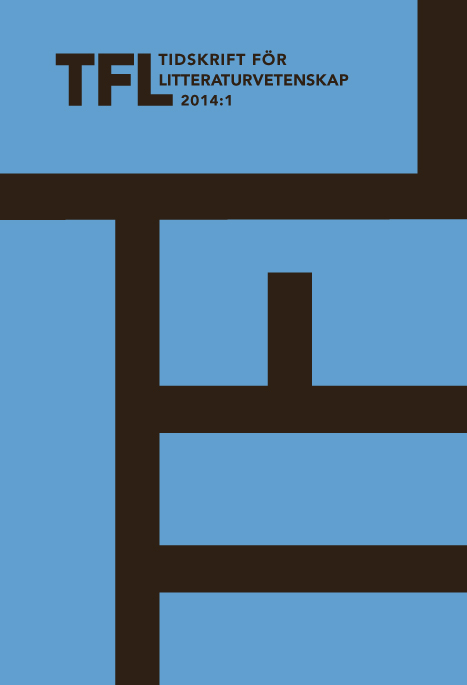Rösten i hålan
En analys av relationen mellan jag och röst i Ann Jäderlunds tidiga poesi
DOI:
https://doi.org/10.54797/tfl.v44i1.10537Nyckelord:
Ann Jäderlund, Julia Kristeva, Vimpelstaden, subject, I, voice, abject, uncanny, emptiness, deathAbstract
The Voice in the Cavity. An Analysis of the Relation Between the ”I” and the Voice in Ann Jäderlund’s Early Poetry
This article focuses on Ann Jäderlund’s early poetry, with particular emphasis upon her first poetry book, Vimpelstaden (Streamer City), from 1985. Its aim is to investigate the poetical subject’s relation to language and to itself as the speaking subject within the text. The critical reception of Jäderlund was shaped by the fierce debate which followed the publication of her second book, Som en gång varit äng (Which Was Once a Field), in 1988. In the wake of this debate, Jäderlund has generally been presented as both a rebellious and playful poet who, against the background of the dominating masculine tradition of literature, attempts to find a new language for repressed female experiences. This article aims to complicate the standard picture of Jäderlund by highlighting the self-reflexive and anxiety-ridden aspects of her poetry. Through close and careful readings of Jäderlund’s poems, the article explores the split between the ”I” and the voice which runs through the texts. It analyses the feelings of disgust, horror and alienation that the ”I” expresses in relation to language in general, and to the particular experience of hearing itself speak. My analysis utilizes Julia Kristeva’s theories of language, placing particular emphasis on her account of the so called ”thetic phase”, in which the relation between the ”I” and its linguistic representation as ”I” (the subject in language) is established, as well as her theory of the abject. This split between the ”I” and its linguistic voice or expression is also manifest in the uncanniness surrounding the depiction of hands writing. To shed light on this phenomenon, I discuss Sigmund Freud’s and Slavoj Žižek’s accounts of how severed limbs – hands, for example – function as paradigmatic expressions of the uncanny.
Nedladdningar
Downloads
Publicerad
Referera så här
Nummer
Sektion
Licens
Författaren/författarna behåller copyright till verket






